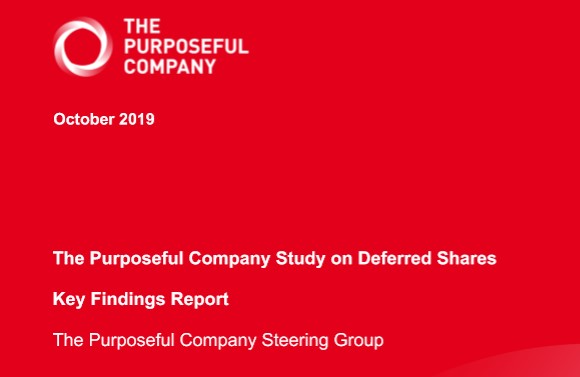Report: The Purposeful Company Study on Deferred Shares
This report from The Purposeful Company Steering Group considers the rationale for implementing deferred shares, as well as the barriers to adoption that prevent many companies from implementing where it might be suitable.
Key findings
- There is widespread support amongst investors and companies for greater adoption of deferred share models. Overall the consensus is that such plans might be appropriate for 25% of companies or more.
- Investors and companies generally see behavioural and practical benefits from a move to deferred shares, including long-term alignment and encouraging long-term behaviour, as well as greater simplicity and spending less time on executive pay and target setting.
- A minority of investors and companies also identify risks in terms of increased incidence of payment for mediocrity or failure, and reduced incentives, which could result in executives coasting or could create difficulties with recruitment.
- There are significant barriers to greater adoption: investors’ sceptical stance to deferred shares; the risks of adoption, in terms of low voting outcomes or severe compromises to secure support; and the work involved through the consultation process.
- There is willingness on all sides to move the debate and practice forward. If process and design changes can be made to improve deferred shares, more companies will be able to take advantage of simplified pay designs that are most effective for their circumstances.







